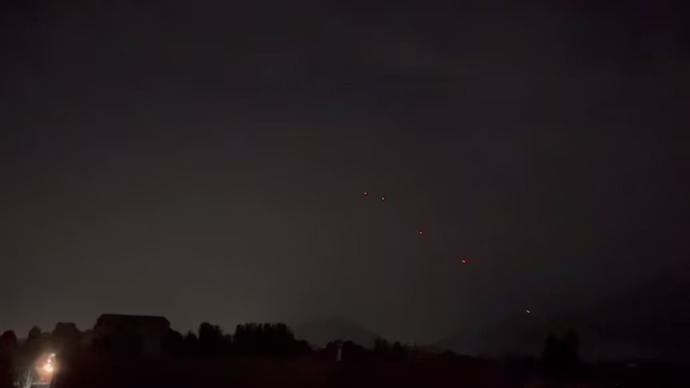Pakistan Violates Ceasefire Hours After Agreement with Drone Attacks on Srinagar and Other Cities

Pakistan violated the ceasefire with drone attacks and artillery shelling in Jammu, Kashmir, and Punjab, hours after agreeing to a truce with India.
In a sudden escalation, Pakistan violated the ceasefire agreement with India just hours after both nations had agreed to a truce. Pakistan launched a series of drone attacks and artillery shelling along the International Border and the Line of Control (LoC), targeting multiple locations in Jammu and Kashmir, including Srinagar, as well as areas in Punjab and Rajasthan.
The attacks came shortly after both governments confirmed the ceasefire, which had been initiated by Pakistan following the resumption of truce talks. Pakistan’s government had announced the ceasefire, and India also confirmed the agreement, with expectations of a temporary halt in hostilities.
However, the situation rapidly deteriorated as multiple blasts were heard in Srinagar. In response, a red alert was declared, and a blackout was enforced in the region. In addition to Srinagar, drone sightings were reported in Baramulla and Rajouri, with an air raid siren also being activated in the Samba district of Jammu. Both Jammu and Kashmir and Punjab saw an increased presence of suspicious Unmanned Aerial Vehicles (UAVs), prompting local authorities to take immediate action. Blackouts were also enforced in Katra, the base camp for Mata Vaishno Devi pilgrims, to ensure public safety.
Drone activities were reported in several districts of Punjab, including Gurdaspur, Ferozpur, Pathankot, and Jalandhar, with authorities urging the public to stay indoors and maintain voluntary blackouts in the wake of the escalating situation.
The Jammu and Kashmir Chief Minister, Omar Abdullah, expressed outrage over the violation, stating that the drone attacks took place just hours after the ceasefire announcement. In a tweet, Abdullah declared, "This is no ceasefire," referring to the explosions heard across Srinagar. He also shared a video showing air defense units being activated in response to the attack.
The ceasefire agreement, which was a significant development after the military operations between the two countries that began following the terrorist attack in Pahalgam on April 22, has now been thrown into question. The discussions leading to the ceasefire were conducted at the level of the Directors General of Military Operations (DGMOs) of both countries.
As tensions continue to rise along the border, authorities are on high alert and have urged residents in affected areas to remain cautious.











